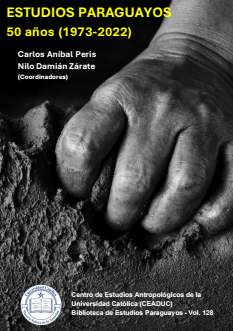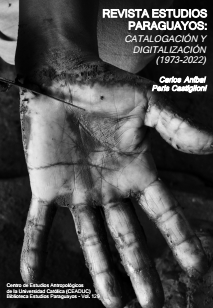Training for the performance (human capital) and education as heresy: Social Sciences and bio politics
DOI:
https://doi.org/10.47133/respy3390107Keywords:
education, citizenship, spacing, bio politics, Social Sciences, heresyAbstract
The problem emerges as a counter of the diverse and complex virulent social processes triggered from the assumption of the current pandemic as consummated fact. Establishing policies, speeches, and practices in which the citizenship only allowed themselves to be carried away as in the course by a torrent, answering to the imposture only by reflection of it. Establishing the precedent, the door is opened to the recurrent invocation of the pandemic, and at the same time, in a paranoid way to another probable future virus, in a cyclical way, as a reminder and justification (legitimacy) to promote behavior (government) using a very specific theme. of health; however, spreading and affecting all areas of society. As objectives, the effects of knowledge-power, causes and consequences of the application of certain devices that simultaneously invade and normalize society as a whole and to each individual are made explicit. Just as, in the face of the normal fear of the majority of citizens in the face of the possibility of death, although this is objectively limited, as it will be seen, progress is made out of the proportion in the invasion of the social life, both private and collective, in an extension of actions of government beyond the strictly sanitary. Educational indicators playing a part in the exercise of citizenship and its civic empowerment have been considered, as a key of protection and guarantee of fundamental rights. Also, some numbers regarding the pandemic and mortality that allows to measure the disparity as well as what can be beyond the sanitary excuse for such an intensive government deployment. And, finally, a discussion of the object of study of the teaching exercise in social sciences, as the core of panic, interweaving the negative association between social relationships with the social spacing. The method has been qualitative, based on comparative documentary analysis. The results show how in a situation of health risk the opportunity is used politically and strategically from bio politics for an unprecedented expansion, depth, and acceleration in the application of strategies and tactics of social discipline more efficient and effective than those of the beginning of modernity. Necessaries, from the system, and for the development of the capital, so that the human being without property becomes a useful and docile worker, and at the same time politically consistent. This is what is called the construction of hegemony processes for the legitimate exercise of domination. The technologies of the self (Foucault, 1990) improve the internalization of the external social structures unconsciously in the context of late neoliberal modernity through the psycho-power, using the dataism and the illusion of freedom in the performance of the improve yourself. (Han, 2014a). Even the attempt to redefine the practice itself and the concept of key relationship of the social life, expressed in various ways as social spacing; when, what it is about here, is to rescue them safely, rejecting the getting used to the new normality. Finally, heresy is presented as a methodological practice for teaching performance in the social sciences. Perceived that one, as reflexivity of the social structures and processes, practices, and discourses, thinking and discussing what is already naturalized as normalized.
Downloads
References
ABC Color. 2019. Las muertes que se pudieron prevenir. (16 de diciembre de 2019). Por Estefhany Cantiè.
ABC Color. 2020. Ciudadanos no facilitan datos a la app porque no confían en el estado dice TEDIC.
Agamben, G.; Deleuze, G.; y Pardo, J. 2005. Bartleby, el escribiente. Valencia: Pre-Textos.
Bachelard, G. 1987. La formación del espíritu científico. México: Editorial Siglo XXI.
Brown, W. 2015. Estados Amurallados, soberanía en declive. Barcelona: Herder.
Bourdieu, P. 1983. Cuestiones de Sociología. Rio de Janeiro: Editora Marco Zero.
__________. 1991. La Distinción. Criterio y bases sociales del gusto. Madrid: Taurus.
__________. 1993. El Oficio del Sociólogo. Buenos Aires: Siglo XXI.
Bourdieu, P., & Passerón, J. C. 1981. La reproducción. Barcelona: Editorial Laia.
Caballero Merlo, J.N. 2012. “La pobreza de la anarquía autoritaria. Rastros socio-antropológicos del zoon politikon”, en e-l@tina. Revista electrónica de Estudios Latinoamericanos. e-l@tina, Vol. 10, núm. 39, Buenos Aires, abril-junio de 2012, pp. 35-54, http://www.iealc.sociales.uba.ar/publcaciones/elatina. 31 de mayo de 2020.
__________________. 2014. El recurso a la Epistemé foucaultiana: del discurso del saber al dispositivo de poder como práctica. En: Caballero, J. & Peris, C. Sociodata.org. Paraguay desde la perspectiva de Michel Foucault. Sociodata.org. Asunción: Arandurá.
Chomsky, N. 2020. Esto dice Noam Chomsky sobre el coronavirus y la geopolítica mundial. (CiudadValencia, Entrevistador) Valencia.
Foucault, M. 1969. Las palabras y las cosas. D.F.,México: Siglo Veintiuno.
__________. 1974. Microfísica del poder. Rio de Janeiro: Editorial Graal.
__________. 1979. La arqueología del saber. D.F., México: Siglo XXI.
__________. 1980. Vigilar y castigar: el nacimiento de la prisión. D.F., México: Siglo XXI.
__________. 1986. La verdad y las formas jurídicas. D.F., México: Editorial Gedisa .
__________. 1987a. A história da Loucura. São Paulo: Editorial Perspectiva.
__________. 1987b. Historia de la Sexualidad 1: la voluntad de saber. D.F., México: Siglo Veintiuno.
__________. 1987c. Historia de la Sexualidad 2: el uso de los placeres. D.F., México: Siglo Veintiuno.
__________. 1987d. Historia de la Sexualidad 3: la inquietud de sí. D.F., México: Siglo Veintiuno.
__________. 1988a. El sujeto y el poder. Revista Mexicana de Sociología, 2(3), 3-20.
__________. 1988b. Un diálogo sobre el poder y otras conversaciones. Madrid: Editorial Alianza.
__________. (1990). Tecnologías del Yo y otros textos aines. Barcelona: Paidós.
__________. (1993). Las redes del poder. Buenos Aires: Editorial Almagesto.
Galindo, G. 2020. Desobediencia, por tu culpa voy a sobrevivir. (Mujeres Creando. Texto publicado originalmente en Radio Deseo y cedido por María Galindo para #Apocaelipsis).
Han, B-C. 2020. La emergencia viral y el mundo del mañana. Editorial: El virus no vencerá al capitalismo. (A. Gómez Bravo, Ed.)
________. 2020b. 9 definiciones sobre la pandemia de Byung-Chul Han, el filósofo surcoreano que seduce al mundo.
________. 2018. Mi deber político es no viajar, porque quiero rehuir el flujo de turistas. Entrevista a Byung-Chul Han, por Daniel Gamper.
________. 2020a. ¿Vamos camino a una nueva sociedad disciplinaria?
________. 2012. La sociedad del cansancio. Barcelona: Herder.
________. 2014. En el enjambre. Barcelona: Herder.
________. 2014a. Psicopolítica Neoliberalismo y nuevas técnicas de poder. Barcelona: Herder.
Hajj, S. 2020. El distanciamiento social dañará el concepto de ciudadanía. EFE Redacción Internacional. Pensamiento coronavirus (Serie Especial)
Harari, Y. 2020. El mundo después del coronavirus. La Tercera. Recuperado el 24 de marzo de 2020, de https://culto.latercera.com/2020/03/19/antidoto-cooperacion-noah-harari/
________. 2020a. Superaremos la pandemia, pero correremos el peligro de despertar a un mundo diferente. XLSemanal.
Lakatos, I. 1983. "La metodología de los Programas de investigación científica". Madrid: Alianza Editorial.
Levitt, M. 2020. El demoledor diagnóstico de un Premio Nobel sobre las cuarentenas: “No salvaron ninguna vida". Infobae.
Melville, H. 2008. Bartleby, el escribiente. Traducción de María José Chuliá. Ilustrado por Javier Zabala. Madrid: Nórdica.
Ministerio de Educación y Cultura. 2011. Plan Nacional de Educación 2024. Presidencia de la República. Recuperado el 07 de mayo de 2020, de https://www.mec.gov.py/cms_v2/adjuntos/2344.
Mizrahi, D. 2020. Sociología del coronavirus: cuando la cultura de los países puede ser una ayuda o un obstáculo ante la pandemia. Infobae.
Parker-Pope, T. 2020. ¿El virus está en mi ropa? ¿En mis zapatos? ¿En mi pelo? ¿En mi periódico? Estilos de Vida. Vivir Mejor. The New York Times.
Piaget, J. 1999. La psicología de la inteligencia. Barcelona: Editorial Crítica.
Zamora, K. 2020. El fin del siglo estadounidense y el regreso de la tentación autoritaria. El Mundo. Actualidad Política. Bajado de https://www.dw.com/es/el-fin-del-siglo-estadounidense-y-el-regreso-de-la-tentaci%C3%B3n-autoritaria/
Zizek, S. 2020. Zizek sobre el coronavirus: un golpe letal al capitalismo para reinventar la sociedad. Ijamasurf.com.
Downloads
Published
How to Cite
Issue
Section
License
Copyright (c) 2021 Javier Numan Caballero; Estudios Paraguayos

This work is licensed under a Creative Commons Attribution-NonCommercial 4.0 International License.
















